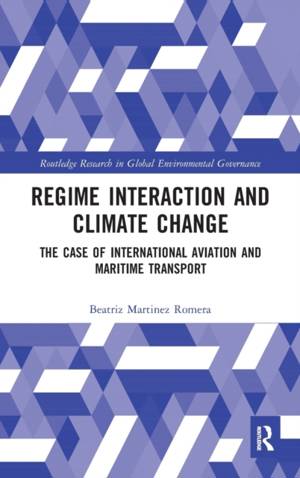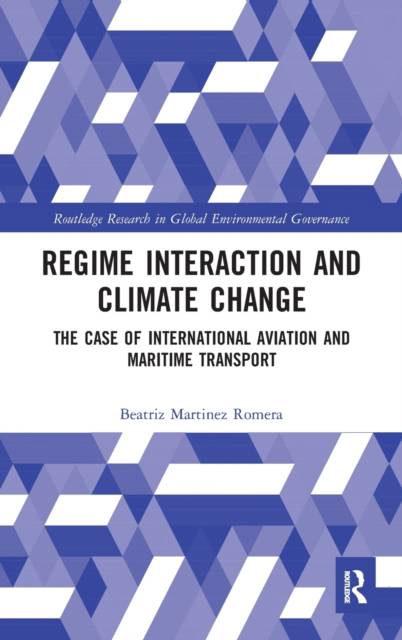
- Retrait gratuit dans votre magasin Club
- 7.000.000 titres dans notre catalogue
- Payer en toute sécurité
- Toujours un magasin près de chez vous
- Retrait gratuit dans votre magasin Club
- 7.000.000 titres dans notre catalogue
- Payer en toute sécurité
- Toujours un magasin près de chez vous
Regime Interaction and Climate Change
The Case of International Aviation and Maritime Transport
Beatriz Martinez RomeraDescription
The regulation of greenhouse gas emissions from international aviation and maritime transport has proved to be a difficult task for international climate negotiations such as the Paris Agreement in 2015. Almost two decades prior, Article 2.2 of the Kyoto Protocol excluded emissions from international aviation and maritime transport from its targets, delegating the negotiation of sector-specific regulations to the International Civil Aviation Organization (ICAO) and the International Maritime Organization (IMO), respectively. However, progress at these venues has also been limited.
Regime Interaction and Climate Change
maps out the legal frameworks in the Climate, ICAO and IMO regimes, and explores the law-making process for the regulation of international aviation and maritime transport through the lenses of fragmentation of international law and regime interaction. The book sheds light on how interaction between these three regimes occurs, what the consequences of such interaction are and how they can be managed to resolve conflicts and promote synergies.This book will be of great interest to scholars of international environmental law and governance, climate change policy and climate change law.
Spécifications
Parties prenantes
- Auteur(s) :
- Editeur:
Contenu
- Nombre de pages :
- 278
- Langue:
- Anglais
- Collection :
Caractéristiques
- EAN:
- 9781138211902
- Date de parution :
- 14-12-17
- Format:
- Livre relié
- Format numérique:
- Genaaid
- Dimensions :
- 156 mm x 234 mm
- Poids :
- 566 g







